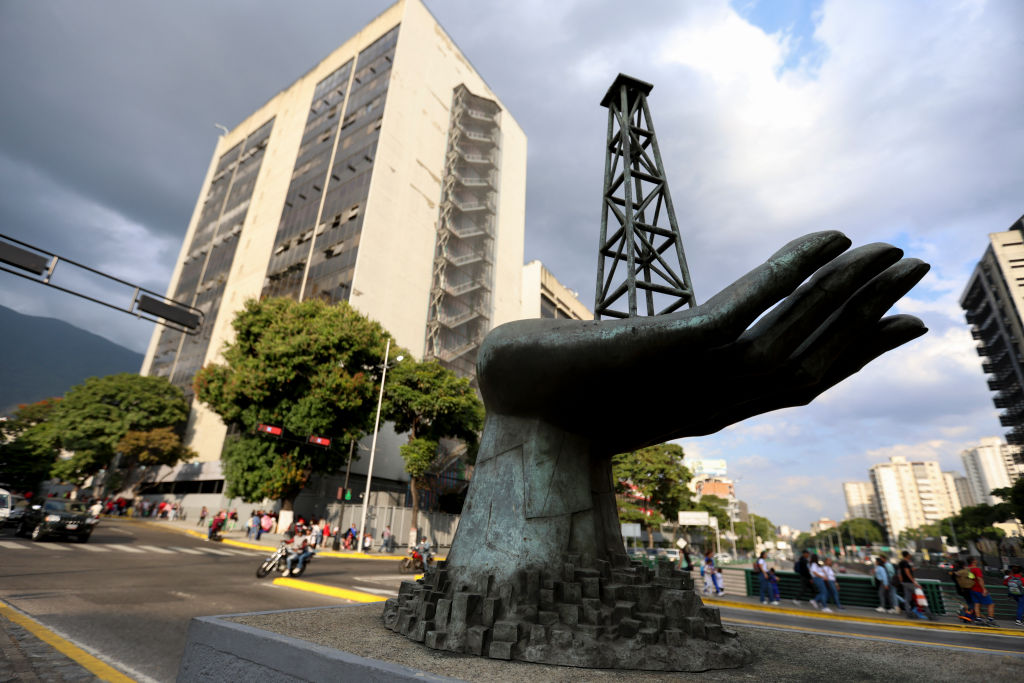Remarks by Thomas Shannon at the 37th Annual Washington Conference on the Americas
Remarks by Thomas Shannon at the 37th Annual Washington Conference on the Americas
Key Western Hemisphere ministers such as Thomas Shannon explored issues at the forefront of the U.S.-Western Hemisphere agenda during the 37th Annual Washington Conference on the Americas.
[As prepared for delivery]
Thank you, Susan, for that introduction. As always, it is an honor to join you all for the 37th Annual Washington Conference on the Americas. I'm delighted to be here today.
The theme this year, "Building the Americas Consensus," is fitting because it emphasizes the importance of cooperation and dialogue in the region. I think what you see is a keen interest on the part of most countries in the region to develop and strengthen their relationship with the United States and to do the same with each other. That does not mean they always agree with us, or favor our global actions, but we believe that the peoples of the Americas, and their leaders, want a strong and productive relationship with the United States. And to the extent that we can build those relationships and strengthen those partnerships, we can establish the diplomatic and political space to foster dialogue, cooperation, and collaboration to take advantage of challenges to democracy as catalysts for political, social, and economic development.
I'd like to take a minute and talk about the President's trip to the region in March and use that to make a larger point about our relationship and engagement in the Hemisphere.
Following a year of elections marked by voters voicing their concerns with and expectations of governments, as well as by a regional reaffirmation of democratic institutions that are responsive to electorates and working to solve problems and improve lives, the President thought it important to travel to the Hemisphere and reach out to our partners in the region. It is worth noting that this was the President's 11th trip in the Hemisphere and 8th trip to Central and South America in his 6 years in office--more than any other U.S. President. This demonstrates that our engagement is not new--it is rooted in long-standing and long-lasting relationships.
The President's visit to Brazil, Uruguay, Colombia, Guatemala, and Mexico in March underscored our continuing commitment to the region as well as the scope and depth of that commitment. We desire and will endeavor to engage any democratic government, regardless of where they fall on the political spectrum, in real partnership. There is no room for old zero-sum approaches today. We must all succeed, or none of us can. We seek to work with democratically elected governments to ensure that the benefits of democracy extend throughout the Hemisphere.
Secondly, we want to strengthen and build on our relationships in the Hemisphere--not just at a government-to-government level, but at a people-to-people level, among all individuals whose talents are essential to building secure and prosperous societies.
This includes reaching out to historically excluded groups to ensure that our engagement is comprehensive, and representative of the width and breadth and depth of the peoples of the Americas. Again, we saw this during the President's time in the region--whether street children in Sao Paulo, Afro-Colombians on the coast of Colombia, or Mayans in Guatemala, the President's visit was intended to demonstrate the fullness of our commitment to the Americas and the peoples of the Americas.
The President's visit was also an opportunity to remind U.S. citizens of the strategic importance of the Americas. It is in our national interest to help the people and democracies in the Americas succeed. As the President noted, "when our neighbors are prosperous and peaceful, it means better opportunities and more security for our own people." Therefore we are committed to helping our partners meet urgent social needs and ensure that democracy and democratic governments deliver the security, services, and opportunities their people demand.
The elections that took place in 2006 revealed that the peoples of the Americas have a wide variety of concerns about their futures. People throughout the region want to know that economic growth in open markets will lead to prosperity and success, to good jobs and higher standards of living. Across the hemisphere parents are concerned about the prevalence of narcotics and the violence that always accompanies drug-trafficking. There are legitimate concerns about corruption--especially the corruption that is linked to narcotics--and about crime and gang violence. Poverty, social justice, and inequality are prominent concerns throughout the hemisphere.
Citizens in a democracy have a very reasonable expectation that their elected governments will represent the voice of the people and consequently governments have a responsibility to address these concerns--whether they are economic, political, or social. These concerns are rooted in the shared values of the peoples throughout our hemisphere.
As the President said at the U.S. Hispanic Chamber of Commerce shortly before his trip, "our two continents are becoming more than neighbors united by the accident of geography. We're becoming a community linked by common values and shared interests…."
And it is in recognition of these common values, building on our shared interests, that really marks our engagement in the region. I believe that the convergence of purpose that we see today between the United States and our neighbors in the Western Hemisphere is unprecedented and compelling.
This is a region that has taken great strides toward freedom and prosperity, raising up new democracies and bringing stability to their fiscal policies. Yet alongside this progress remain serious challenges in the region's social agenda remain. We believe it is crucial that these democracies are able to translate these gains in freedom and democracy into tangible, meaningful changes to improve the daily lives of their people. We are committed to this kind of engagement--to helping our neighbors meet basic needs like education, healthcare, and housing, and maintain economies that make it possible for workers to provide for their families and rise in society.
Trade is an engine of economic growth. Key to economic growth in a market economy is access to international markets, particularly the United States. One of the single most important steps we can take in supporting our neighbors in the region is to approve and implement the free trade agreements pending before the Congress. These agreements will significantly contribute to both economic and social development in the region by creating jobs and reducing poverty. It is also worth recognizing that each of the governments that negotiated these agreements was elected by the people of those countries because of their demonstrated commitment to these agreements and the economic opportunity they represent. We need to understand, appreciate, and respect that context.
Our agenda of engagement in the Americas constitutes the space in which we believe dialogue and collaboration will give rise to great opportunity within the Americas and globally. I view the current climate in the Americas as positive and hopeful. Our hemisphere stands poised to demonstrate the ability of democratic governments to meet the basic needs of their people and to establish growing economies, reconcile and rebuild conflict-ridden regions, and preserve the environment while also meeting critical energy needs of their populations. These are profound lessons for developing countries in Africa, the Middle East, and Asia, and their successes can offer real hope to people throughout the world.
The President's trip was only the beginning of what we are calling a "year of engagement"--one of intensified U.S. involvement and engagement, marked by ambitious and concrete efforts to advance the hemisphere's democratic agenda, and to demonstrate that democratic institutions are meeting the needs of their people and building a more prosperous and secure Hemisphere. It is also a year when we hope to work with our partners in the region to begin the long process of restoring a free Cuba to its place in the inter-American system.
Our commitment to the Americas underscores our desire to ensure that the benefits of democracy are enjoyed by all of our citizens in their daily lives. The degree to which we are successful in our efforts will act as a source of encouragement for those who are working to confront and overcome these same challenges elsewhere in the world. The degree to which we are unsuccessful will reinforce the belief that only authoritarian governments can handle the tough work of ending poverty and inequality and building vibrant economies. I am of the opinion that the Americas have already demonstrated the power and the potential of democracy. I am also of the opinion that as the United States continues to engage with our partners in the region and to strengthen those relationships, we can establish the diplomatic and political space to foster dialogue, cooperation, and collaboration to use the challenges we face as catalysts for the political, social, and economic development that will build a more secure and prosperous future for our Hemisphere.








